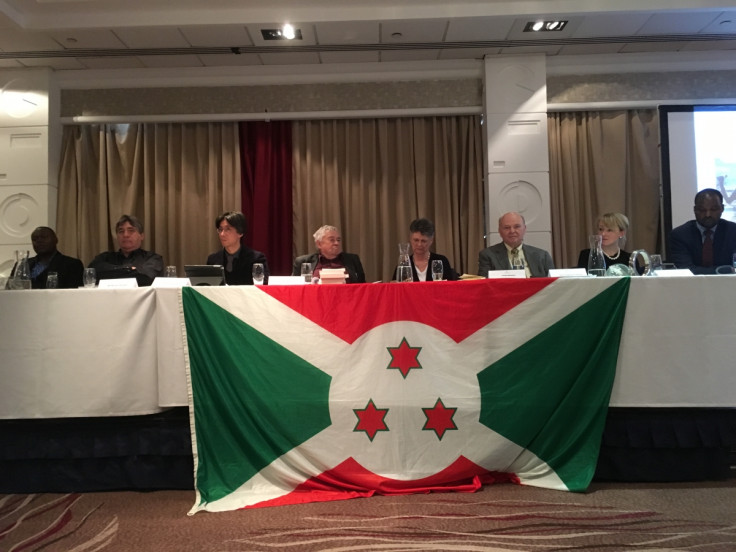Burundi: International Conference: "Without justice there can be no peace in Burundi"
Burundi: International Conference brings together experts as crisis deepens

"Without justice there can be no peace in Burundi or in the Great Lakes", Emery Igiraneza, a spokesman of Burundi Crime Watch said in his opening statement at the International Conference on Burundi in Manchester on 25 March.
The bloody crisis that has killed up to 900 people, pits supporters of President Pierre Nkurunziza against those who say that his re-election in July 2015 for a third term violated the constitution of a nation still reeling from a civil war that occurred between 1993 and 2005, leaving 300,000 people dead. After a failed coup, the government intensified its crackdown and most of those arrested or disappeared today are young men and women accused of participating in or supporting opposition groups.
The International Conference on Burundi brought together experts and aimed at raising awareness of crimes that are being committed in the small African nation on daily basis, according to organisers, UK-based organisation Burundi Crime Watch.
The conference, which looked at answering the question: Genocide in preparation or experts' exaggeration?, took place a day after IBTimes UK revealed 60 Burundian families officially mandated a group of lawyers to bring cases in front of the High Commissioner for Human Rights and the International Criminal Court (ICC) regarding alleged crimes against humanity committed in Burundi.
'Humanity should not be silent'
Burundi Crime Watch's Igiraneza told the audience: "We are here to talk about atrocities, about potential genocide, about mass killings that are happening. Burundians have suffered a long inter-ethnic conflict. Almost on a daily basis since last April, people are being killed in Burundi, and we are here to say this should not happen and humanity should not be silent."
After highlighting the nation's post-independence violence, Igiraneza insisted on the international community's role in assuring past conflicts should not be repeated.
"Right now, many experts have warned that Burundi can go into a new genocide. What does it take humanity to say stop to this situation?" Igiraneza said.
MP: 'Put pressure on your own MP'
During the conference, Rebecca Long Bailey, MP for Salford and Eccles, condemned the lack of international scrutiny of the violence.
"Our attentions are too often drawn to other parts of the world by the BBC, ITV and Sky, and the public are not aware of the terrible atrocities that are happening in these parts of the world. Because these atrocities are not on the same scale as other examples of persecution in our history, it's no less worthy of international attention, condemnation and scrutiny."
The MP underlined the failures to bring to justice perpetrators of heinous crimes, and claimed these shortcomings would give those involved "further impunity for their past and any future actions".
Long Bailey urged Burundians and UK residents to appeal to the political establishments across the world and put pressure on their local MP to take steps towards justice.
"I am saddened that there are not more MPs that are interested in this subject, so, what I ask you to do after today, is to go back to your own constituencies and put pressure on your own MPs, whatever political party they are in, and ask them to become involved in this issue, and to join the all party Parliamentary group of the Great Lakes region, because it is really important to have as many people involved as possible."
Other guest speakers included Gregory Stanton, a research professor in genocide studies and prevention at the Institute for Conflict Analysis and Resolution of George Mason University, Virginia, USA, Burundi's civil society lawyer Bernard Maingain, Nigel Watt, author of Burundi: Biography of a small African country, and Linda Malvern, an investigative journalist who has concentrated on the circumstances of the 1994 genocide in Rwanda, and Burundi.
© Copyright IBTimes 2025. All rights reserved.






















